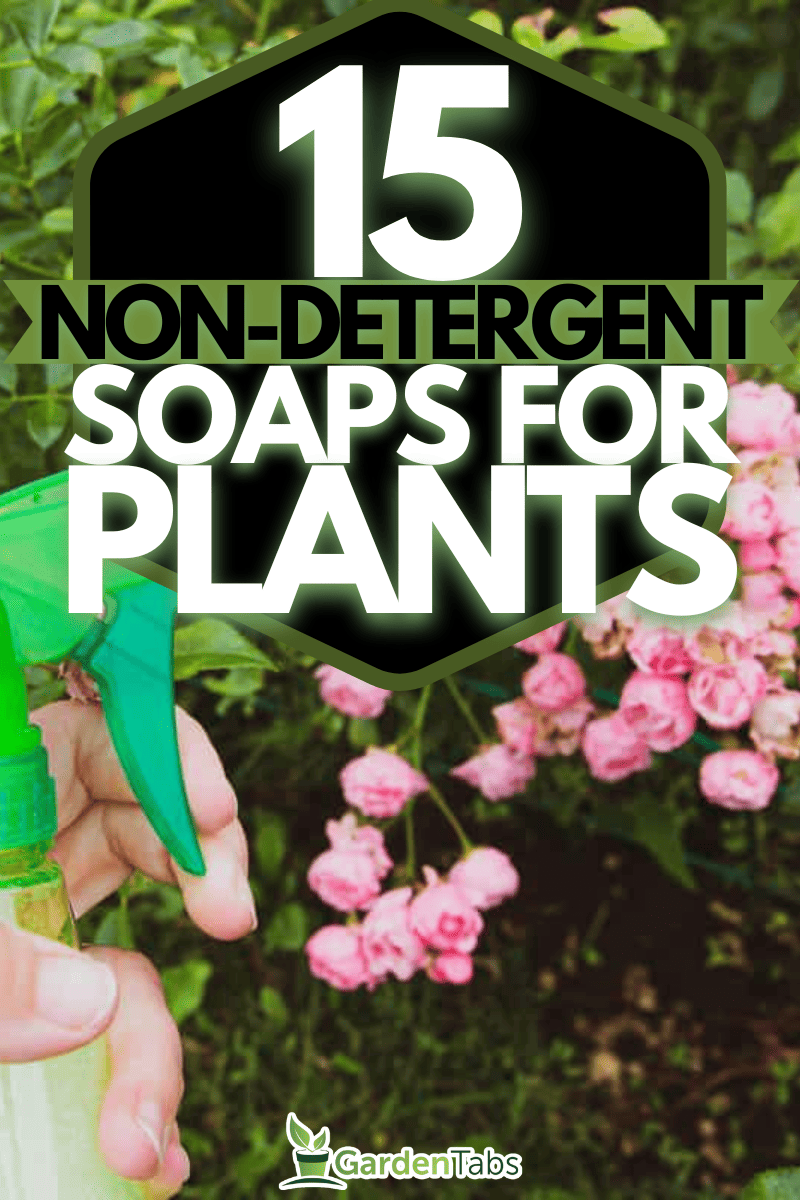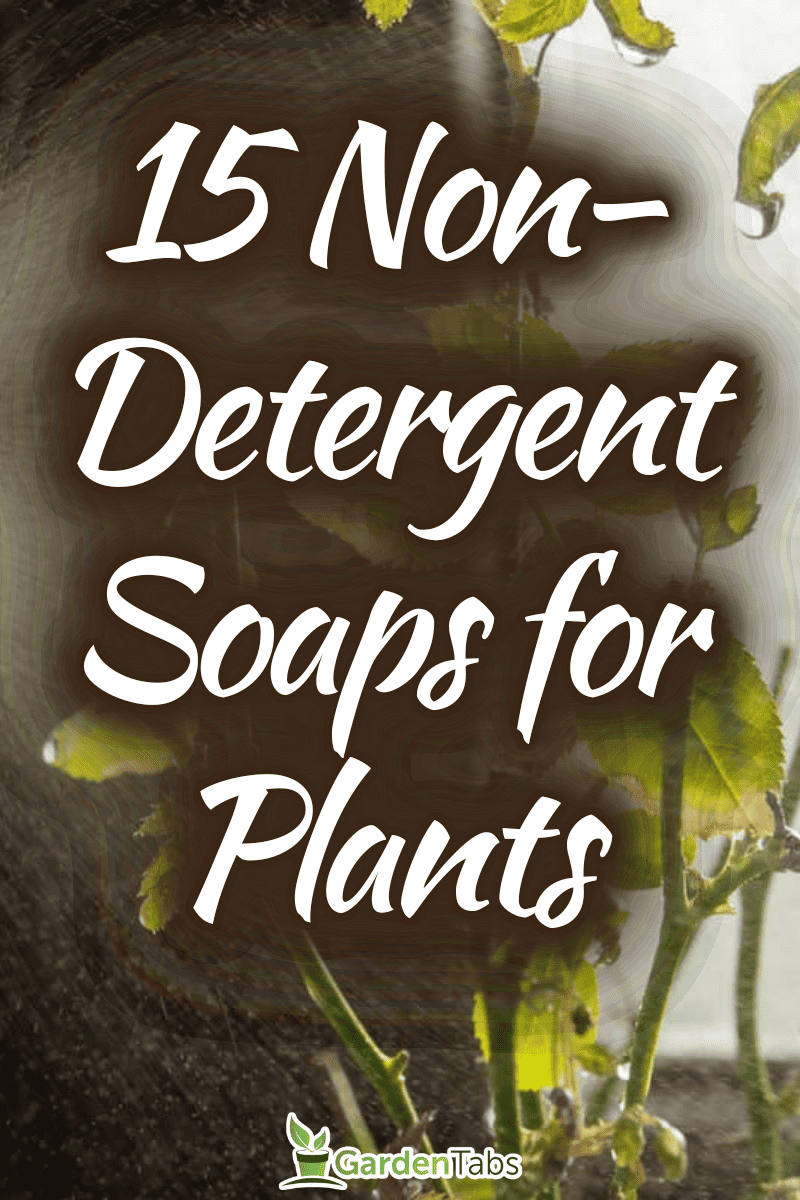Plants need cleaning once in a while. Insecticidal soaps will kill the insects that come in contact with your plants. Using them will help you prevent plant diseases.
Besides keeping the plants clean, you should also be conscious of soil and water systems when using plant soap. You should select a soap that is safe for the plants and the environment.
When choosing soap, you should check for any harmful chemicals as an ingredient. Not all insecticidal soaps are detergent-free, so you have to be careful. There is a variety of plant-friendly soaps that will keep your plants clean.
Keep reading below to find out more about each of the 15 products in our list.
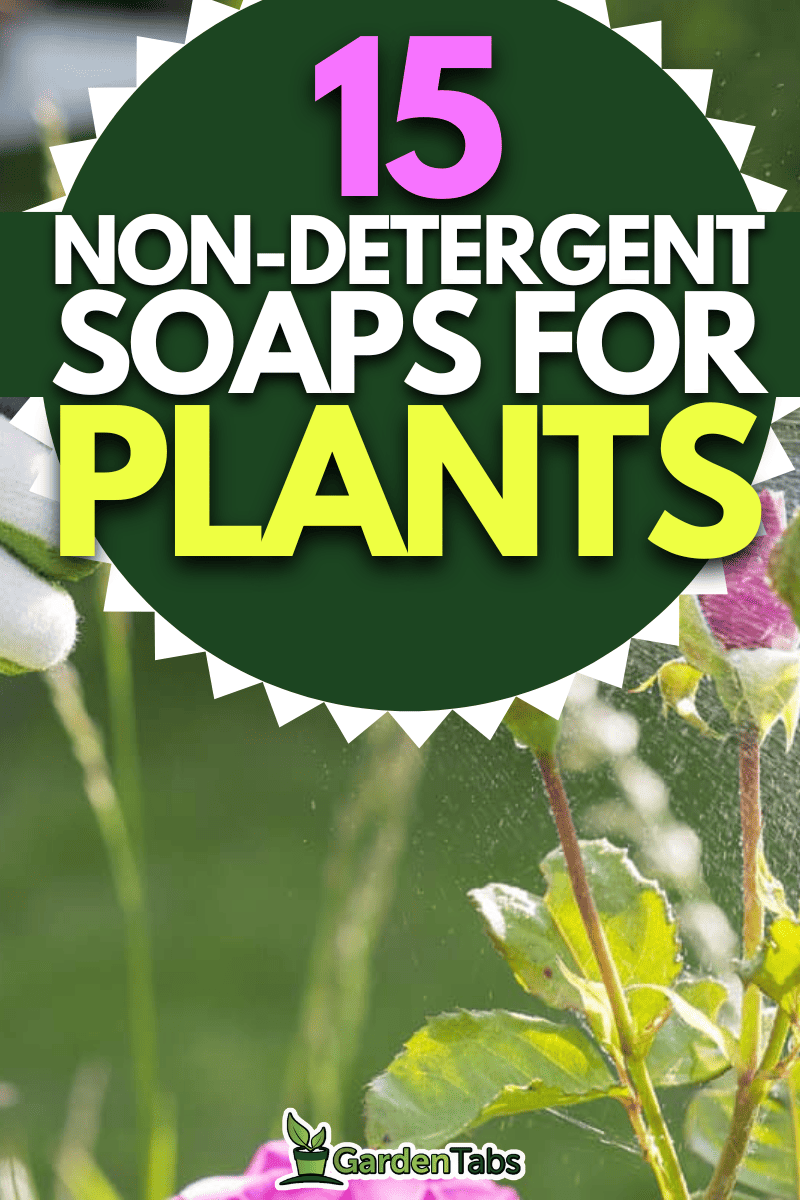
1. Safer Brand Insect Killing Soap
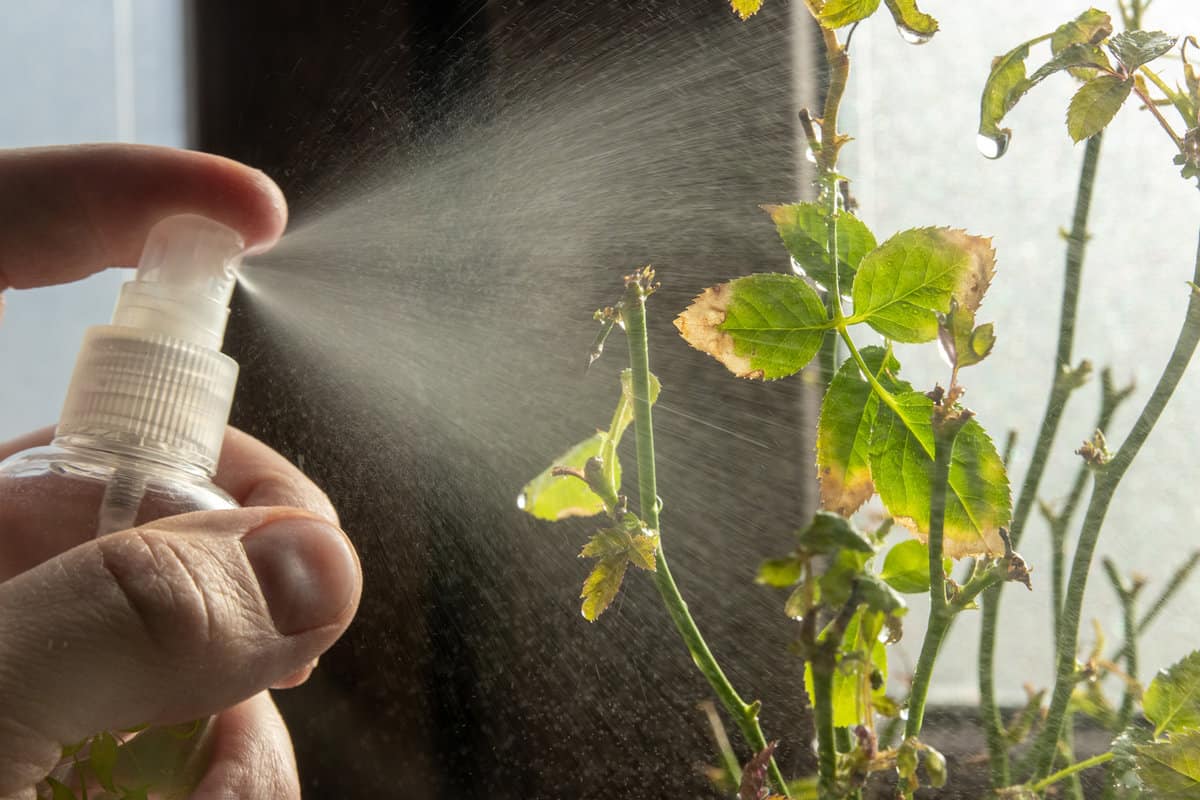
Use this OMRI and certified organic soap to combat damaging pests in plants. The soap is also best for hydroponic and indoor plants. It is gentle when you spray it directly on the plants, and it has no unpleasant odors.
The soap's active ingredient is potassium salts of fatty acids that will not harm the environment. You can use the soap up until the day of harvest.
Spray this soap on the plants when you see the first signs of insect damage. Then reapply it every 5-7 days if the insects are still present.
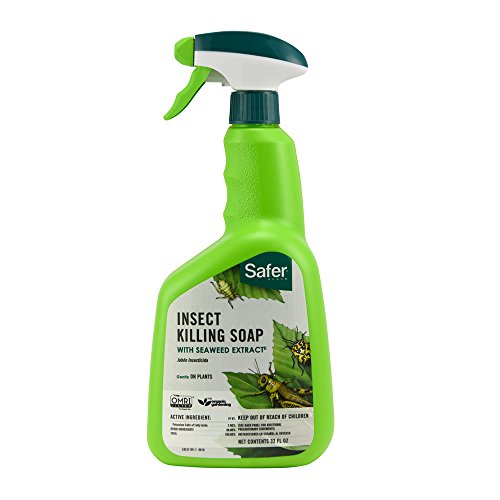

Click here to see this product on Amazon.
2. Mammoth CANNCONTROL Concentrated Insecticide Spray for Plants
This product claims to be a highly-effective fungicide and insecticide. The spray has natural thyme compounds that leave no toxic residue. Other ingredients include corn and oleic acid.
You should spray your well-hydrated plants once a week, especially during the vegetative or flowering stages. However, do not apply the product when there are bees actively foraging the plants. You should read the directions before using this product.


Click here to see this product on Amazon.
3. NPK Industries Power Wash Plant Care
This wash removes the unwanted residues left by pesticides, sticking agents, and foliar products. It also helps the plant to maximize photosynthesis by unclogging the stomata of the leaves.
You can use this wash during the growing and flowering cycles of the plant until the day of harvest.


Click here to check out this product on Amazon.
4. Garden Safe Brand Insecticidal Soap
Another non-detergent soap option is from Garden Safe. The insecticidal soap is a fast-acting insect killer that is great for organic gardening. You can spray away powdery mildew and pests through contact.
However, according to the manufacturer, you cannot use this on delicate ferns, nasturtiums, or sweat peas. Moreover, be careful when you use the product on new seedlings, blooms, and transplants.


Click here to purchase this product on Amazon.
5. Bonide Insecticidal Soap
You can use this soap for all your organic gardening needs. This ready-to-use insecticidal soap is effective by directly spraying the pests.


Click here to buy this product on Amazon.
6. Organic Laboratories Organocide Bee Safe 3-in-1 Garden Spray
This trusted organic garden spray contains a formulation that is safe for bees. It is an effective and natural solution against garden insects, spider mites, and scale insects. There are no petroleum solvents included.
The product is safe for all plants, except for the Euphorbia family, which showed some sensitivity.
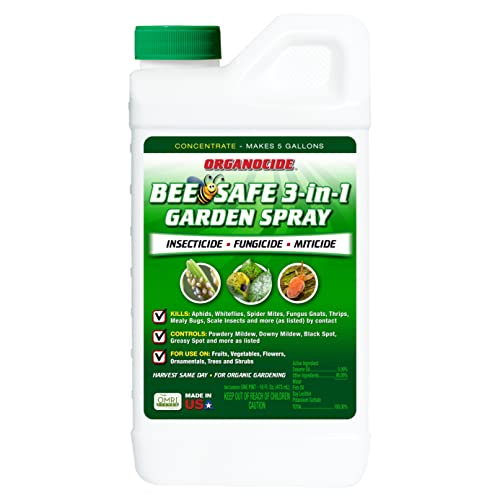

Click here to get this product on Amazon.
7. Mighty Mint Plant Protection
This product provides complete plant protection that is safe for you, your plants, and your pets. It has premium ingredients that effectively kill insects, spider mites, and fungi. The spray has U.S.-farmed peppermint oil to battle plant issues.
You only need to gently spray on both sides of the leaves. Reapply every 7-10 days as needed. If you want your plants protected for long, apply every 2-3 weeks.


Click here to see this product on Amazon.
8. Earth's Ally Insect Control for Plants
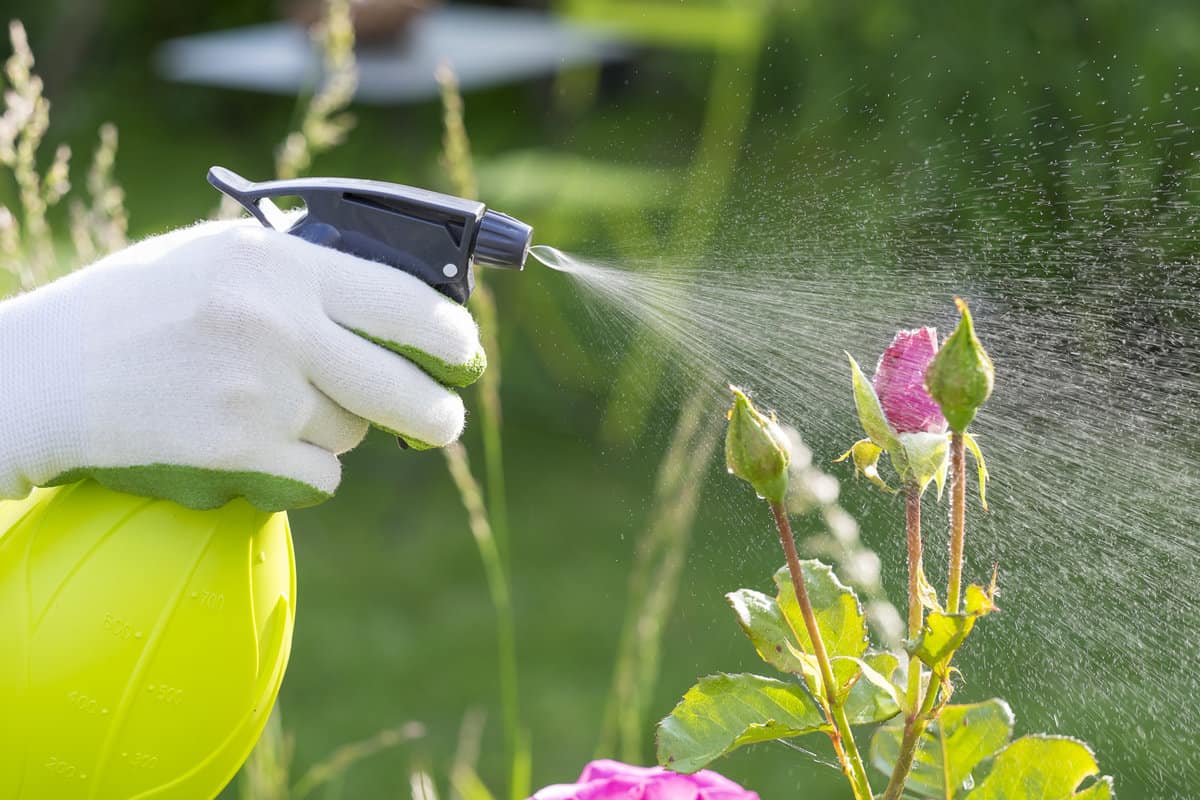
You can effectively fight common soft-bodied plant insects and mites with this organic spray. You should not worry if bees will be harmed because this product will protect them, too.
The spray's active ingredients include:
- Clove oil
- Peppermint oil
- Rosemary oil
As a precaution, do not use the product if the temperatures are above 90°F and there are active pollinators.


Click here to buy this product on Amazon.
9. VPG Fertilome Natural Guard Insecticidal Soap
Like most insecticidal soaps, this product has potassium salts of fatty acids as the active ingredient. You can use this soap for the following:
- Vegetables
- Fruit and nut trees
- Citrus
- Greenhouses
- Ornamentals
- Shrubs
- Flowers


Click here to purchase this product on Amazon.
10. Natria Insecticidal Soap Organic Miticide
This soap can kill insects in minutes and is also a preventive bio-fungicide to control plant diseases. You can use this for a wide range of plants for indoor and outdoor gardens.


Click here to see this product on Amazon.
11. Harris Garden Insect Killer Insecticidal Soap
Use this insecticidal soap to kill insects at all life stages to prevent them from eating the foliage. The active ingredients of this soap are potassium salts of fatty acids and spinosad. The clean formula of this soap does not leave any residue on the plants.


Click here to get this product on Amazon.
12. Miracle-Gro Nature's Care Insecticidal Soap
This fast-acting insecticidal soap is great for organic gardening. It also has potassium salts of fatty acids as its active ingredient.
Spray the soap on all plant parts, especially the undersides of the leaves. Reapply to the plants every week or bi-weekly.
Per its product label, do not spray on the plants during full sun. It is best to find a day with calm weather and there is no expected rain for at least 24 hours after spraying.
As an environmental precaution, do not allow the product to enter storm drains, gutters, or surface waters.


Click here to see this product on Amazon.
13. Espoma Organic Earth-Tone Insecticidal Soap
This soap is a contact insecticide with 47% potassium salts of fatty acids as an active ingredient. Applying this soap to plants is similar to other insecticidal soaps. You need to wet all plant parts, especially the underside of leaves.
You should not spray this on stressed plants. In addition, the best time to spray is during the early morning, evening, or when the weather is overcast.


Click here to get this product on Amazon.
14. Natural Guard Spinosad Soap
This insecticidal soap has .1% spinosad that is effective in contact-killing plant pests. It combats Japanese beetles, caterpillars, and leafminers. You need to reapply the soap every 7 days.


Click here to buy this product on Amazon.
15. M-Pede Insecticide Soap
This soap is an OMRI-listed and NOP-compliant organic fungicide, insecticide, and miticide. The soap provides broad protection against soft-bodied insects and powdery mildew.
After applying, it has a 12-hour restricted entry interval. The restricted hours also mean it has a preharvest interval of 0 days.


Click here to purchase this product on Amazon.
Why Is Detergent Harmful To Plants?
Detergent soaps are toxic to plants and the environment. The wax coating of the leaves will disintegrate if you use a detergent-based product. In effect, your plants will dehydrate because they cannot receive water. Using soapy water will not benefit your plants in the long run.
If you also spray used soapy water from washing the dishes, it creates greywater. This water attracts insects and rodents that feed on the healthy plant parts. Also, the water can contain bacteria and viruses that cause plant diseases.
You can also create your if you don't want to buy a commercial non-detergent plant soap.
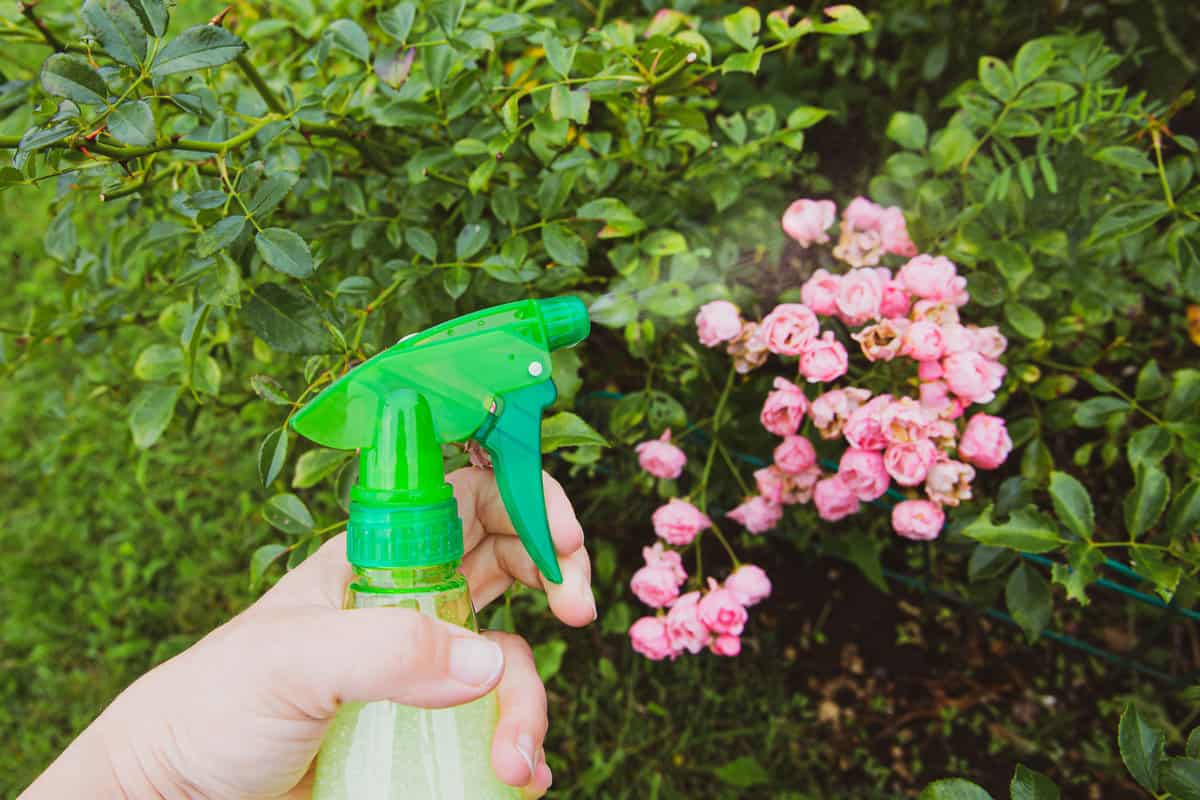
Homemade Non-Detergent Plant Soap
The ingredients for a gallon of homemade 1% insecticidal soap solution include:
- 1 gallon of distilled water
- 2 1/2 tablespoons of mild liquid soap (e.g., liquid Castille soap)
- 1 tablespoon of vegetable oil (optional)
Take note that you should not use hard water because the solution will not be effective. You should mix all of the ingredients in a one-gallon sprayer.
Apply the soap by spraying on both sides of the leaves and the soil surrounding the plant.
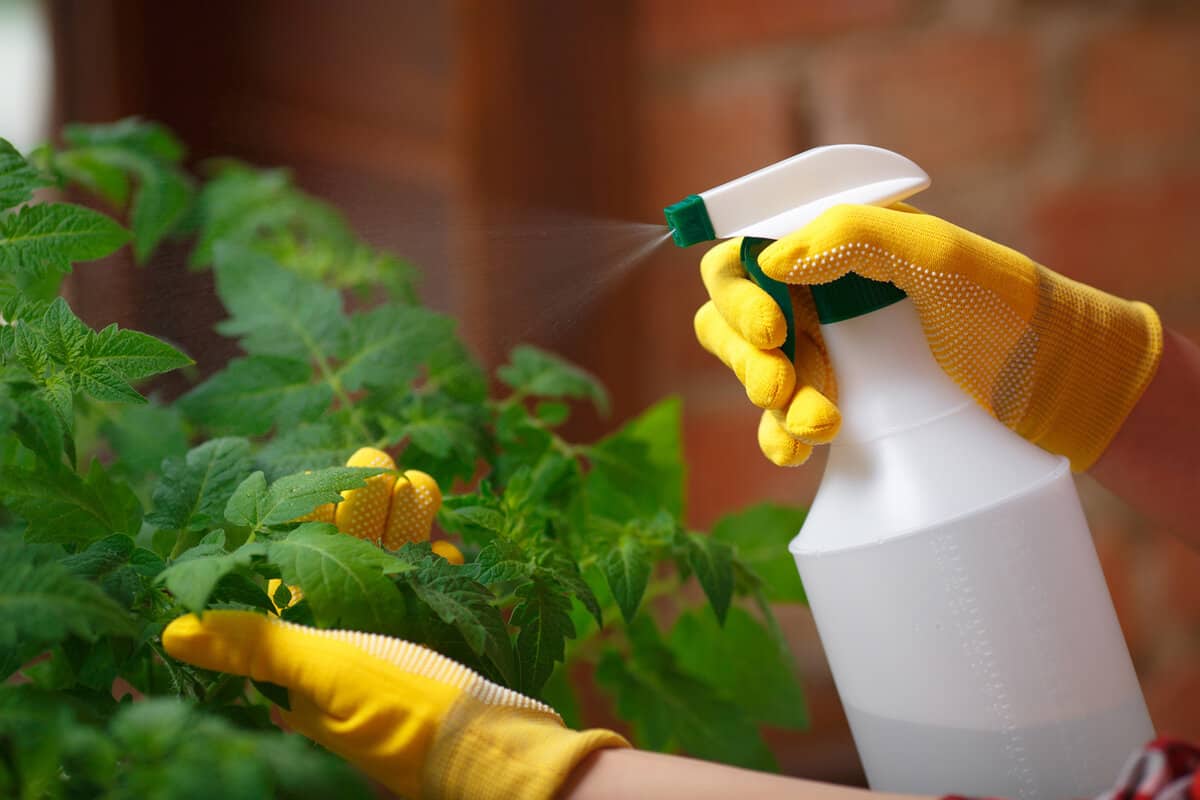
In Summary
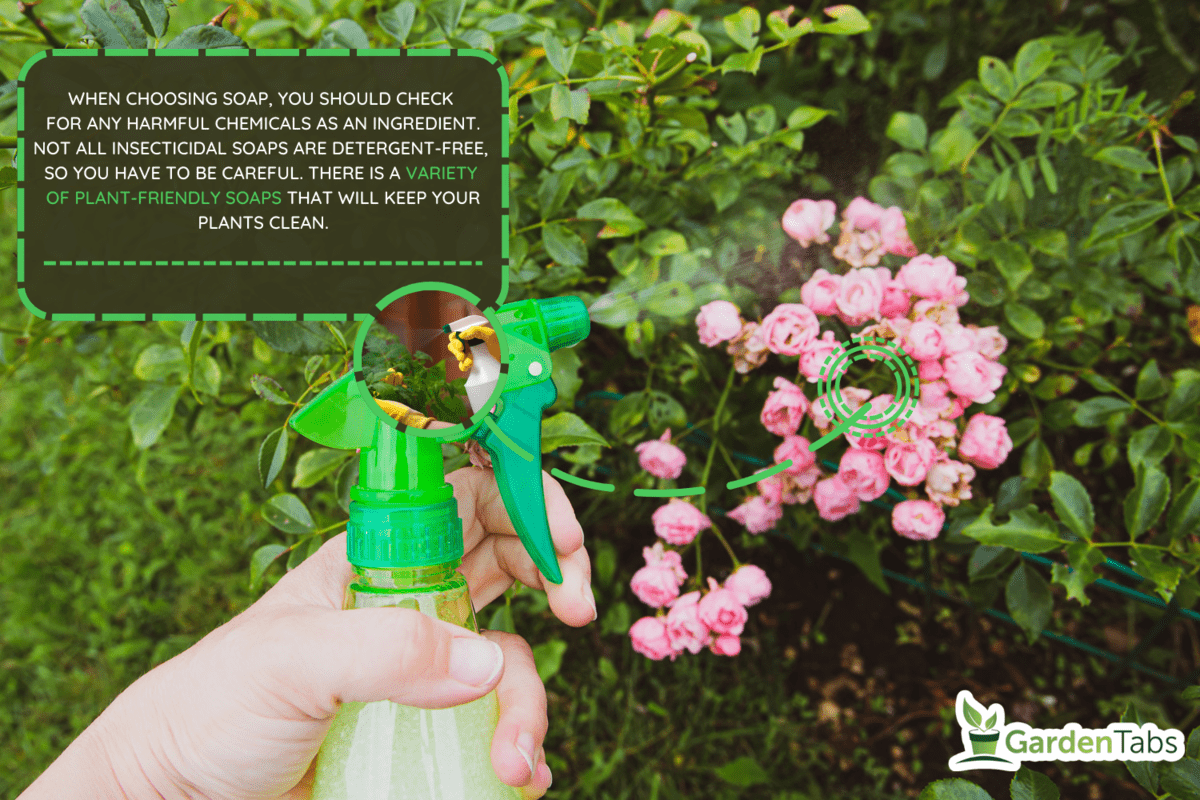
Detergent is toxic to plants and will cause dehydration in leaves. But there are great options available on the market for non-detergent plant soaps. These insecticidal soaps are effective in killing plant pests and keeping healthy foliage.
You should look at the product info sheets of the soaps to check if there are ingredients to avoid. The soap should not only be plant-safe but also environment-friendly. Always follow the instructions of the plant soap products to avoid any side effects.
If you do not want to buy products, you can make a homemade non-detergent plant soap that is also effective.
Regardless of your choice, you should ensure that your plants get the best benefits.
You might want to read more about protecting your plants from these posts:

